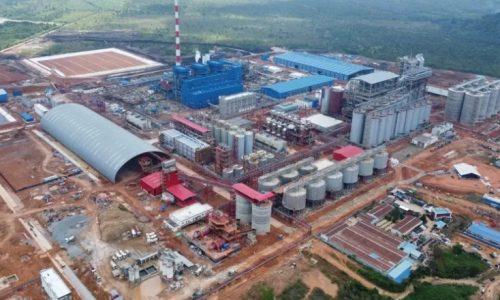The Indonesian Ministry of Industry is anticipating impact of the Iran-Israel conflict on the national petrochemical industry.
This potential impact is due to the fact that the majority of industrial raw materials still depend on imports of naphtha commodities. Naphtha is an intermediate product that is used as an ingredient for making fuel. On the other hand, naphtha is needed for non-fuel industry, namely petrochemicals.
Taufiek Bawazier, Director General of Metal, Machinery, Transportation Equipment and Electronics Industry at the Ministry of Industry, said the ministry had discussed the impact of the conflict on April 16 2024. However, there are no concrete results in the form of steps to protect the national industry in the near future as yet.
“We will still monitor the conflict and analyze its impact. The impact on the manufacturing sector is not yet visible because manufacturers have stocked raw materials before Idul Fitri 2024,” he said.
Meanwhile, Pahala Mansury, Deputy Minister of Foreign Affairs, said that the conflict could affect the global supply chain, including domestic impacts. Apart from that, this conflict can also affect the delivery of goods to and from Europe and the Middle East, with one of the areas being affected is the strategic Strait of Hormuz.
In naphtha products, which are petroleum derivative products, as much as a fifth of global oil production passes through the Strait of Hormuz, reaching 21 million barrels per day in 2018.
Pahala Mansury said that the government would therefore monitor three aspects related to the conflict, such as:
- The impact of the conflict on rising energy prices;
- The impact of conflict on domestic food prices;
- The influence of conflict on the investment risk premium and the outflow of foreign funds from the country.
Pahala cited that the government is preparing mitigation in this conflict scenario if it prolongs. He emphasized that the direction of national diplomacy in responding to this conflict was to reduce escalation.
“We will strive for our diplomacy to reduce escalation, or avoid escalation, and even try to de-escalate,” he said.










